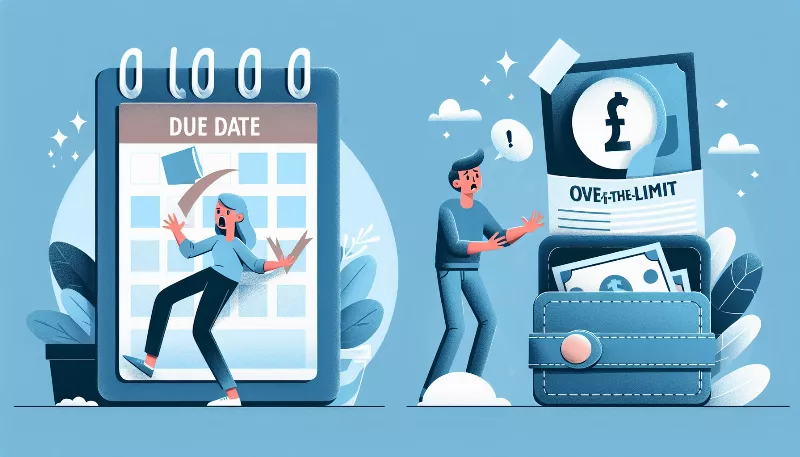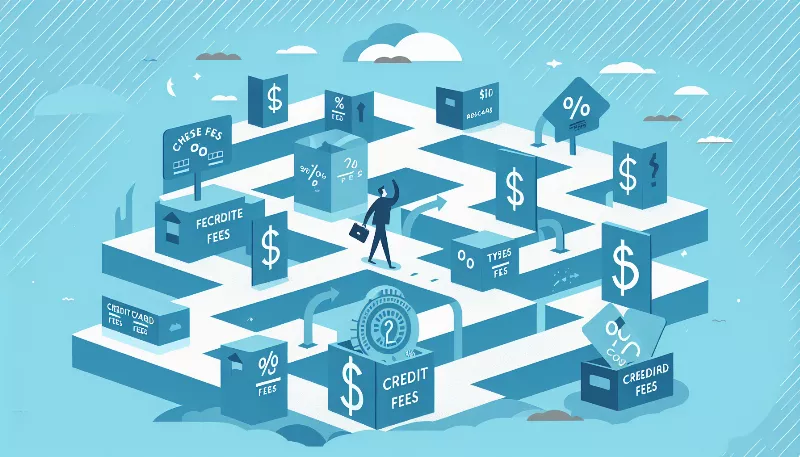What is the difference between a late payment fee and an over-the-limit fee?
Discover the key differences between late payment fees and over-the-limit charges. Avoid costly mistakes and manage your finances smarter!

Introduction to Credit Card Fees
Are you ready to dive into the world of credit card fees with gusto? Fantastic! Credit cards come with a plethora of potential fees that can catch you off guard if you're not careful. Two of the most common fees that might show up on your statement are the late payment fee and the over-the-limit fee. While they may seem similar at first glance, they're actually quite different. Let's unravel these financial conundrums together!
The Late Payment Fee: A Timely Matter
First up is the late payment fee, the pesky charge that appears when you don't pay at least the minimum amount due by the payment deadline. Credit card companies set specific due dates for your payments, and if you miss this date, even by a day, you could be hit with a late payment fee. This fee is their way of penalizing you for not sticking to the agreed-upon payment schedule.
But wait, there's more! Not only does a late payment fee sting your wallet, but it can also have a negative impact on your credit score. Consistent late payments can signal to lenders that you're a risky borrower, which might make it harder for you to obtain credit in the future. So, it's crucial to keep an eye on those due dates and ensure you're paying on time, every time.
The Over-the-Limit Fee: A Question of Capacity
Next, let's talk about the over-the-limit fee. This fee is charged when you make a charge that puts your credit card balance over the credit limit that has been set by your card issuer. It's like a financial 'oops' moment when you've spent more than you're allowed. The over-the-limit fee is the card issuer's way of telling you to keep your spending in check.
However, thanks to the Credit CARD Act of 2009, consumers must opt-in to over-the-limit protection if they want the ability to exceed their credit limits. If you haven't opted in, transactions that would put you over the limit are simply declined, saving you from the fee. But if you have opted in, you need to be vigilant about your credit card balance to avoid these fees.
Key Differences Between Late Payment and Over-the-Limit Fees
So, what sets these two fees apart? The late payment fee is all about timing, while the over-the-limit fee is about the amount of credit you're using. One is triggered by a missed deadline, and the other by spending too much. Both fees serve as reminders to manage your credit responsibly?pay on time and stay within your credit limit.
It's also worth noting that the amount of these fees can vary depending on the credit card issuer and your particular credit card agreement. Some issuers may charge more for one type of fee than the other, and in some cases, the fees can increase if you repeatedly make the same mistake. Always read the fine print of your credit card terms to understand the fee structure fully.
Conclusion: Stay Informed and Avoid Fees
In conclusion, while both late payment fees and over-the-limit fees are charges that can be avoided, they stem from different actions (or inactions) on your part. By staying informed about your credit card's terms and keeping track of your spending and payment schedules, you can steer clear of these fees and maintain a healthy financial life. Remember, a little bit of attention to your finances goes a long way in avoiding unnecessary charges and keeping your credit score in tip-top shape!








